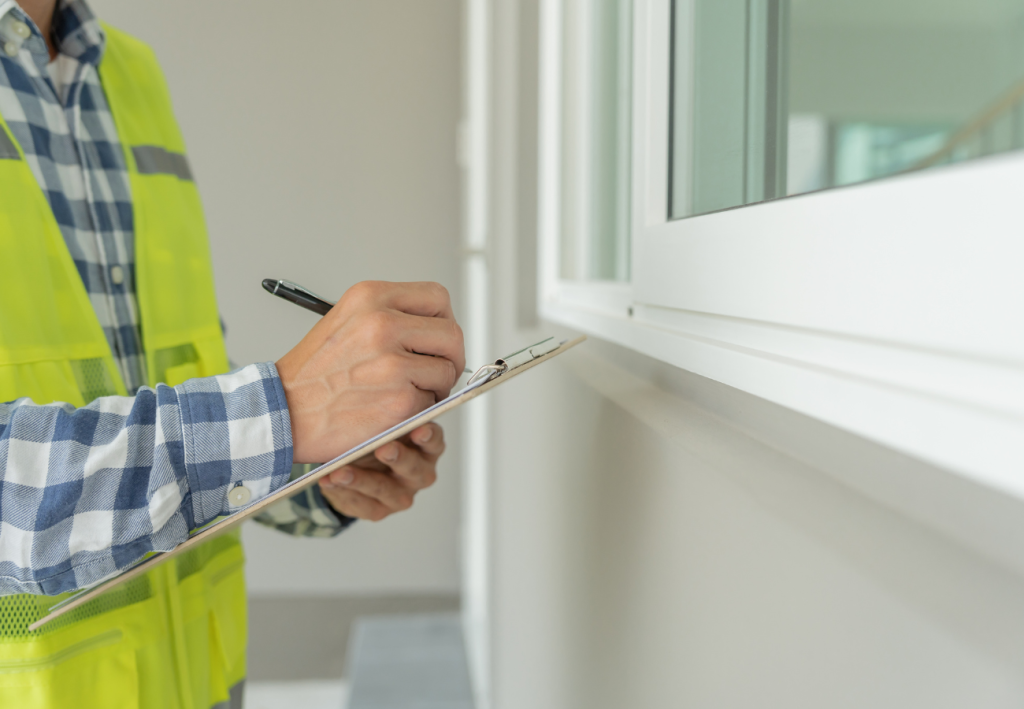Introduction
Investing in a residential building inspection is an essential step for any homebuyer. This critical evaluation serves as your safeguard, providing a comprehensive understanding of the property’s condition before making a financial commitment.
Why are these inspections so important? They reveal the true state of a home, uncovering potential issues that could be costly in the future. Without this vital process, you risk facing unexpected repairs and safety concerns that could turn your dream home into a financial nightmare.
Consider the stakes: purchasing a home is likely one of the largest investments you’ll make. A thorough inspection helps ensure that this investment is sound by highlighting areas needing attention or repair. Ignoring this step can lead to unforeseen expenses and significant inconvenience post-purchase.
By prioritising a professional building inspection, you arm yourself with knowledge, empowering you to make informed decisions and negotiate confidently in the homebuying process. These inspections can even reveal common issues found during residential building inspections, further aiding your decision-making process.
Understanding Residential Building Inspections
A residential building inspection is a crucial part of the homebuying process. It provides a detailed evaluation of a property’s condition, helping you make an informed investment decision. Rather than being just a formality, it’s an essential step in ensuring that you’re aware of any potential issues with the property.
The Role of Professional Inspectors
Professional inspectors play a vital role in the inspection process. They bring their expertise and impartiality to assess the property thoroughly. These trained professionals, known as home inspectors, conduct meticulous evaluations and create comprehensive reports that highlight both existing and potential problems within the property.
The qualifications of these inspectors ensure that inspections adhere to industry standards, providing peace of mind to prospective homeowners. Moreover, these reports often include cost estimates for necessary repairs, giving buyers a clear understanding of what lies ahead.
What Happens During a Typical Inspection?
During a typical home inspection, various components and areas within the property are examined:
Structural Integrity: Inspectors assess the foundation, walls, floors, ceilings, and roof framing to detect any structural issues that could affect the home’s durability.
Roofing: Examining the roof’s condition is crucial. Inspectors look for signs of wear, leaks, or damage that might necessitate repairs or replacement.
Exterior Features: This includes evaluating the siding, windows, doors, and other external elements for defects or maintenance needs.
Electrical Systems: Inspectors check wiring, panels, breakers, and outlets to ensure safety and compliance with electrical codes.
Plumbing Systems: Evaluation includes pipes, fixtures, water heaters, and drainage systems to identify leaks or inefficiencies.
These comprehensive evaluations offer invaluable insights into potential costs associated with repairs or improvements. By addressing these aspects during an inspection, you gain leverage in negotiations or decisions regarding your purchase. Understanding this process underscores its importance in safeguarding your investment against unforeseen challenges in homeownership.
By engaging with professional inspectors who meticulously assess every nook and cranny of your potential new home, you are investing not only in property but also in peace of mind.
Benefits of Investing in a Residential Building Inspection
Investing in a residential building inspection is a strategic move for any homebuyer, offering insights into the property’s condition that are essential for making informed decisions. These inspections provide you with comprehensive data on the state of the home, enabling you to gauge its true value and identify potential future costs.
Empowering Buyers with Information
A detailed inspection report delivers an exhaustive evaluation of the property, covering aspects like structural integrity, roofing, and exterior features. This information empowers you by highlighting areas that may require immediate attention or long-term maintenance, ensuring you’re well-prepared for any eventualities. Knowing the precise condition of key systems such as electrical and plumbing can help mitigate risks associated with unexpected repairs after purchase.
Negotiation Power
One significant advantage of a residential building inspection is its potential to influence negotiations. If the inspection uncovers defects or areas needing repair, these findings can serve as leverage in negotiations with the seller. You might negotiate for reduced purchase prices or request repairs before closing, directly affecting your financial investment in the property.
Uncovering Hidden Issues Through Inspections
Inspections go beyond surface-level observations, often revealing hidden defects that could pose substantial risks if left unaddressed. Common issues discovered during inspections include:
Mould: Frequently found in damp areas like basements or behind walls, mould can lead to serious health concerns if not treated.
Foundation Problems: Cracks or shifts in the foundation can signal structural weaknesses that might compromise safety.
Roofing Defects: Leaks or damaged shingles can result in water damage, requiring costly repairs.
By identifying these problems early through a professional inspection, you can take proactive measures to address them before they escalate.
Health Concerns Associated with Undetected Defects
Undetected defects not only threaten your investment but also pose health risks to those living in the home. For instance, mould exposure can cause respiratory issues and allergic reactions, while faulty wiring might increase fire hazards. A thorough inspection aids in mitigating these risks by ensuring that any potential hazards are documented and addressed promptly.
In essence, residential building inspections act as a safeguard against unforeseen challenges, equipping you with essential knowledge and tools to protect your investment and well-being.
Costs vs. Value of Home Inspections: A Worthwhile Investment?
When it comes to the cost of home inspections, prospective buyers often find themselves weighing the expense against potential future savings. An inspection’s cost is influenced by factors such as the size of the home and its geographical location. Larger homes typically require more time and effort to inspect, leading to higher fees. Similarly, properties located in high-demand areas may incur additional costs.
Investing in a residential building inspection can seem like a significant upfront expense, yet the long-term value it provides is substantial. An inspection may uncover costly structural or systems issues that are not immediately apparent, allowing you to negotiate repairs or price adjustments before finalising the purchase.
Consider these insights into how this investment translates into real-world benefits:
Identifying Major Defects: Early detection of problems like foundation issues or outdated electrical systems can save thousands in repair costs.
Negotiation Leverage: Use inspection reports as a tool for renegotiating terms with sellers.
Informed Decision-Making: Gain a comprehensive understanding of the property’s condition, reducing the risk of unexpected expenses post-purchase.
Evaluating these aspects highlights that an inspection is less about immediate cost and more about safeguarding your financial future through informed decision-making.
Navigating Competitive Markets: The Risks of Waiving Inspections as a Buyer
In today’s competitive real estate market, some homebuyers consider waiving residential building inspections to strengthen their offers. While this strategy might seem advantageous in securing a property, it poses significant risks that cannot be ignored.
1. Financial Concerns
Opting out of an inspection can lead to unexpected repair costs. Hidden issues like faulty wiring or plumbing leaks may not become apparent until after purchase, resulting in expensive fixes that could have been negotiated prior to closing.
2. Safety Risks
Without a thorough inspection, safety concerns such as structural instability or the presence of mould might go undetected. These issues not only compromise your investment but also pose serious health risks to you and your family.
Understanding these potential pitfalls underscores the importance of a residential building inspection. It acts as a safeguard, providing essential insights into the property’s true condition before making one of life’s most significant investments. Engaging with experienced inspectors ensures that you are fully aware of what you are purchasing, preventing unforeseen liabilities and maintaining peace of mind within the transaction process.
New Construction Inspections: Why They Matter Too!
Investing in a new home often comes with the assumption of perfection, but even new builds aren’t immune to construction oversights. Residential building inspections are essential for newly constructed properties to ensure that everything meets the highest standards.
Key Reasons for Inspecting New Constructions:
Identifying Construction Errors: Even the most reputable builders can make mistakes. A thorough inspection can uncover issues such as improper installations or structural deficiencies that might not be noticeable at first glance. Missing insulation, poor drainage systems, and faulty wiring are just a few examples of potential problems.
Ensuring Code Compliance: Building codes can vary by location, and keeping up with them is crucial for safety and legality. Professional inspectors verify that all aspects of the construction adhere to local regulations.
Planning Future Maintenance Needs: Inspection reports serve as valuable resources for homeowners. By understanding the current state of different systems—such as plumbing or HVAC—you can better schedule maintenance tasks and budget for future repairs.
While new constructions offer the allure of modern design and technology, they still require a detailed assessment. Inspections give you peace of mind, ensuring your investment is protected from unforeseen issues down the road.
Conclusion
Getting a residential building inspection is more than just a step in buying a home; it’s a smart choice that protects your long-term investment. These inspections do more than just tell you about the property’s condition; they give you a complete picture, helping you feel confident in your decision to buy.
Peace of Mind in Homebuying: With a thorough inspection report, you can see potential problems clearly, ensuring there are no surprises after you buy.
Protecting Your Investment: The small cost of an inspection can save you from big expenses later on, protecting your finances.
These inspections give you power as a buyer, helping you make informed choices and negotiate effectively. By taking this important step, you strengthen your position in the real estate market and feel more at ease during this important transaction in your life.
Frequently Asked Questions
A residential building inspection is a thorough evaluation of a property’s condition, conducted by professional inspectors. It assesses key areas such as structural integrity, roofing, plumbing systems, and other critical components to ensure the home is safe and sound for potential buyers.
Residential building inspections are crucial for homebuyers as they provide valuable information about the property’s condition. Inspections can uncover hidden defects and potential health risks, allowing buyers to make informed decisions and negotiate repairs or price adjustments before finalising their purchase.
Inspections can uncover various hidden issues, including mould, foundation problems, faulty electrical systems, and plumbing defects. Identifying these concerns early on helps mitigate health risks and costly repairs in the future.
The average cost of a residential building inspection varies based on factors such as the size and location of the property. While costs can differ significantly, investing in an inspection is generally considered worthwhile due to the potential savings from avoiding major repairs down the line.
In competitive real estate markets, some buyers may waive inspections to strengthen their offers. However, this poses significant risks, including financial losses from unexpected repairs and safety concerns related to undetected defects that could compromise the home’s integrity.
Yes, new constructions also require thorough inspections. These evaluations help identify construction errors and ensure that the building meets safety standards. Inspections also assist in planning for future maintenance needs, providing peace of mind for homeowners.
Subscribe To Our Newsletter
Get updates and learn from the best
More To Explore

Common Issues Found by Private Building Inspectors in Adelaide
Investing in property is one of the most significant financial decisions you’ll ever make, and ensuring it’s a sound investment starts with a thorough inspection. Private building inspectors in Adelaide act as your trusted allies, uncovering hidden issues that could impact the safety, value, and longevity of your property. From structural defects and pest infestations

Why You Should Hire a Private Building Inspector Before Buying a property
Purchasing a property is one of the most significant investments you’ll ever make. Yet, beneath the surface of any potential dream home could lie hidden issues that threaten its value, safety, and liveability. This is where a private building inspector steps in—offering an in-depth, unbiased evaluation of the property to ensure you’re making a sound


